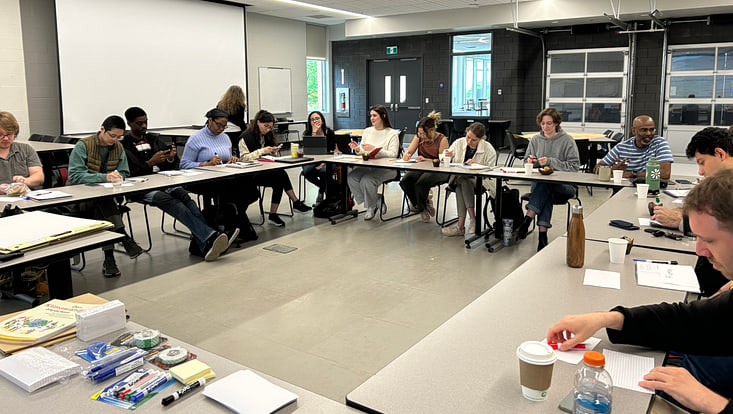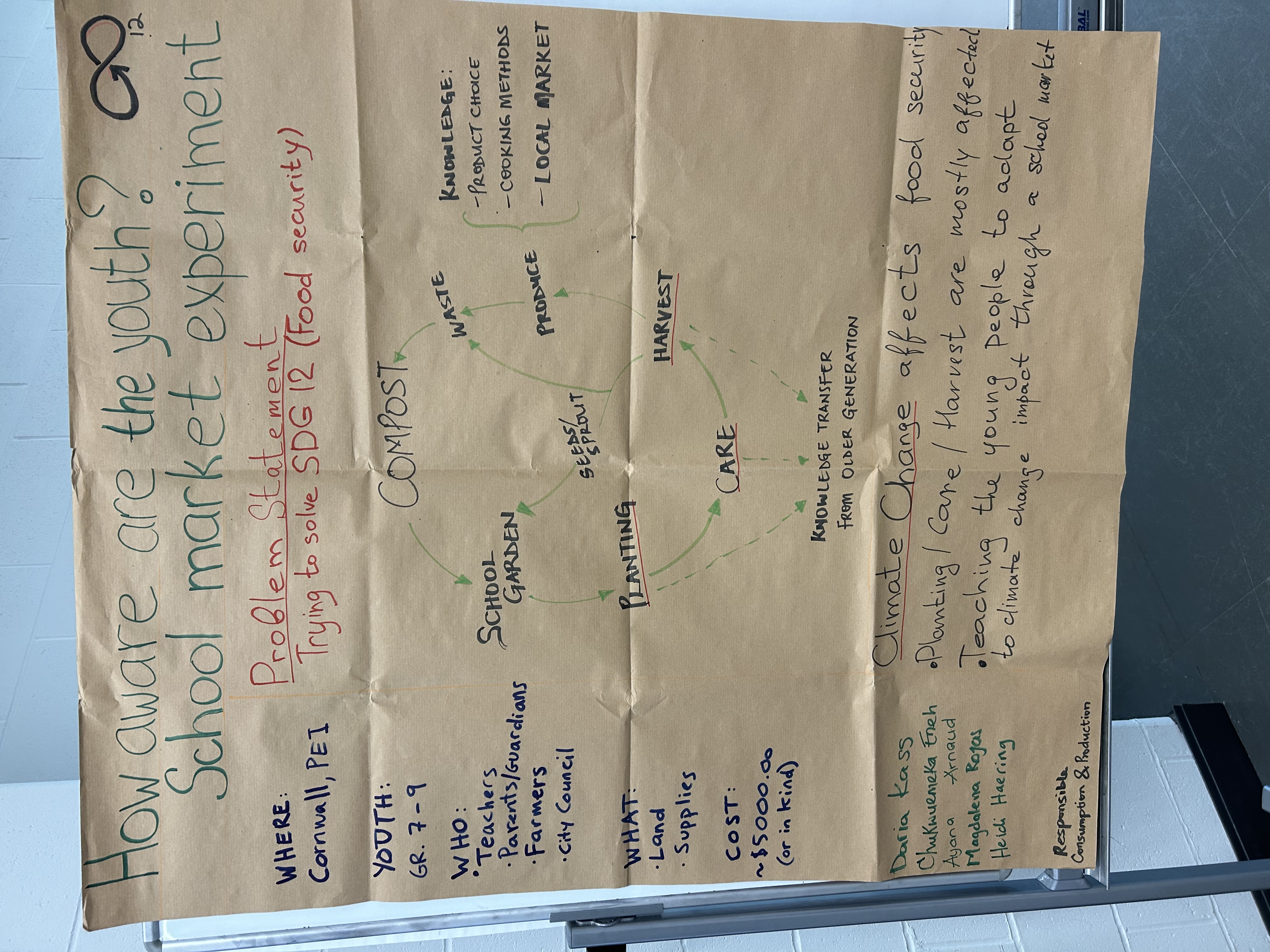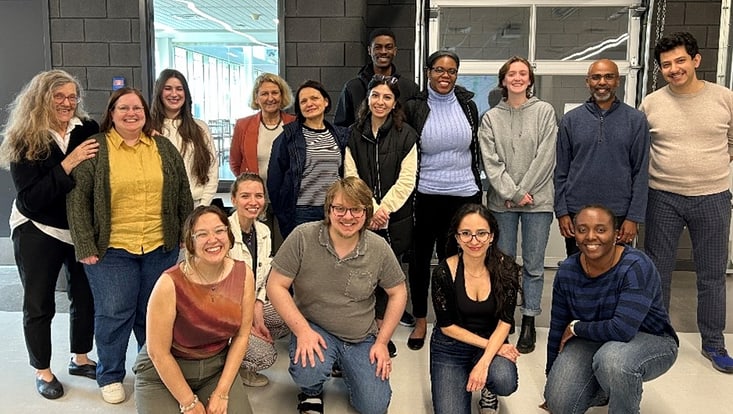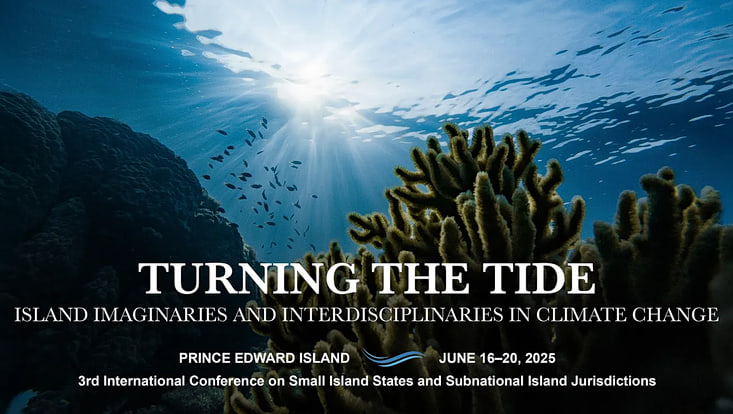Workshop on “Living Geography Labs in small island contexts” at Institute of Island Studies, UPEI
9 June 2025

Photo: B. Ratter
Climate change needs action. Policy goals, strategies, declarations of intent and annual COP meetings are not enough. Plans have to be implemented – and climate change concerns us all. But how do we get people to act? The workshop addressed this challenge by discussing the observed, perceived and learned climate change impacts in the lifeworld of the participant and by developing ideas to cut the “problem salami” into pieces and address immediate issues instead of waiting for “big solutions”.

Beate Ratter introduced the “Living Geography Lab-approach” developed by the UNESCO chair’s group “Societal Climate Change Research and Resilience” in Hamburg. The approach is based on the concept of living labs - a real-world environment where actors collaborate to co-create, to test, and to evaluate new products, services, and systems - and combines it with the fact that people are attached to places. Climate change is a global phenomenon, but its impacts are felt locally. Place and space play an important role in how we shape our life worlds and place attachment is a driving force for commitment, personal engagement and getting active in solving real world problems. Engaging local communities is crucial for effective climate action and resilience. By activating local narratives and practices, creating common experiences and testing sustainable solutions can be tailored to specific cultural contexts.
The PEI workshop aimed to the transfer of the approach to specific situations of small islands. It facilitated processes to scrutinize activating methods of awareness-raising and climate action. In different break-out groups we developed social experiments how to tackle the climate change problems encountered.
With the help of “traveling ideas” the UNESCO chair “Societal climate change and resilience” aims to establish a collaborative network between partners from the global north (Germany, PEI, Greece), from the global south (Seychelles, Tobago and Vanuatu) to exchange ideas and to strengthen the resilience of coastal communities to the impacts of climate change.


